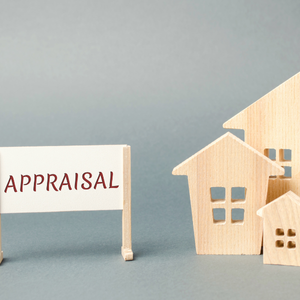
When it comes to separating and understanding the value of the marital home, divorce is difficult. In Massachusetts, certified home appraisals by Naples Home Buyers allow couples to protect their financial interest by guaranteeing equitable property division. These appraisals will serve as the objective value of the home and will be necessary not only for equitable settlements but for lasting financial stability as well. This guide outlines the need for a detailed home appraisal during divorce, along with actionable recommendations, expert commentary, and an emphasis on the significance of the transition to help you through it. Understand this difficult portion of divorce with the confidence it deserves.
Understanding the Role of Divorce Appraisals
Every divorce requires a separation of shared assets, including property. An unbiased assessment of marital assets assists the parties in ensuring equity in the distribution process. In Massachusetts, the value of real estate tends to vary, so accurate appraisal services ensure each party gets a fair share of the equity in the house. Assessing the value of the house can alleviate disputes by instilling confidence in each party regarding the division of property, allowing them to move forward. This explains the need for divorce appraisals and addresses some misconceptions regarding their value.
Why Divorce Appraisals Are Essential in Massachusetts
As part of the equitable division of the marital estate in Massachusetts, the divorce appraiser determines the value of the marital real estate. For each spouse in the divorce to equitably receive the home’s value, a home appraisal must be completed. Unlike appraisals for traditional sales, divorce appraisals must be as impartial as possible, considering the appraiser’s bias over the divorce. This requirement holds especially true for Massachusetts, where the socioeconomic and geographic context of the state can significantly distort the value of homes.
Divorce appraisal services in Massachusetts serve a different function than typical real estate appraisals. Divorcing spouses and appraisers must consider the property’s location, condition, and peculiarities. This, coupled with the appraisal’s objective, assists the appraiser in providing a fair and defensible assessment. No appraisal completed professionally works in the divorce context, where uncertainty about value predisposes divorcing spouses to litigation.
Furthermore, state statutes in Massachusetts incur an obligation to equitably divide all marital property, including real estate in Massachusetts. This does not mean an equal division. This division can be equitable with real estate, equaling more or taking less of real estate. In Massachusetts high asset divorces, the need for an adequate understanding of market dynamics to calibrate and determine real estate value is even more critical. Attaining the value of real estate through the expertise of a professional allows divorcing couples to arrive at marital estate settlements for negotiations and resignations that are less contentious and that equitably represent a marital estate.
Common Misconceptions About Divorce Appraisals

Misunderstandings around divorce appraisals can create issues with the division of property. One of the misconceptions is that divorce appraisals determine the final sale price of the property, while, in fact, appraisals only constitute an estimate based on possible fair market value, serving as a guideline for equitable division. Another misconception is that all appraisal companies can handle divorce cases, while, in fact, it is critical to consult specialists in this field to guarantee that the appraisal will meet the requirements of the unique situation with respect to conflict of interest and precision in value.
Not everyone understands that one appraisal is not always enough, as one party may later seek a second, independent appraisal to resolve any potential bias or mistake related to the first. In addition to value assignment, the appraisal also serves to augment a sense of fairness and thoroughness in the evaluation of the property. From a certain perspective, an appraisal may also limit potential conflict—and, consequently, dispute-related legal fees. Upon completing the appraisal, divorce parties are expected to obtain an equitable division of property along with a degree of clarity and peace.
The Importance of Home Valuation in Property Division
During divorce proceedings, determining fair market values is one of the most important aspects of asset division, particularly with regard to home valuation. In Massachusetts, property division takes into consideration the nuances of the situation, so a complex method is needed to determine market values. An important first step toward fair distribution of the married couple’s real estate is getting the owners an objective professional appraisal. With the estate appraisal, the couple’s real estate market share will be equitable and fair. In the divorce negotiation process, home valuation prevents disputes and streamlines negotiation with the couple. An accurate home valuation can improve the negotiation process and is particularly important to the couple during the property division phase of a divorce.
How Accurate Home Valuation Impacts Property Division
Defining a property’s worth accurately is important for a fair and open division of the property during a divorce. Massachusetts requires an unbiased appraisal to determine the fair market value of a property. This neutral assessment is the basis for equitable distribution. This helps prevent disputes and inequities that a client may perceive in the other party. Determining all relevant factors—such as condition, location, and comparable sales—allows professional appraisers to develop a valuation that reflects the current market reality. Both parties can equally relax, knowing that their jointly held assets are being divided accurately and fairly.
Asset valuation is also important for facilitating negotiation, as it orders property division, and it reduces the likelihood of future conflict. For divorces involving high-value assets, especially, thoughtful valuation clarifies to both parties the financial ramifications of the property division. This appraisal also rationalizes the negotiations, minimizing the likelihood of prolonged disputes. In order to ensure that the real estate division is truly fair and final, both parties to the divorce need to work with registered professionals and maintain an open appraisal process. This coordination optimizes the balance of inequities that divorce brings. For homeowners looking to sell their property during or after a divorce, cash home buyers in Springfield or nearby cities can provide a quick and stress-free way to finalize the sale and move forward with financial stability.
Steps to Ensure Fair Market Value Is Achieved
Obtaining fair market value in a divorce appraisal takes planning, cooperation, and expertise in the field. The situation calls for a certified appraiser, especially one who is familiar with the legal and emotional issues and understands the intricacies of the Massachusetts real estate market. Such an appraiser will ensure that the valuation accurately reflects the market value of the estate at the time of the appraisal. Homeowners can also help improve the market value of the appraisal by making minor repairs, enhancing exterior porches, and keeping the house clean. They can also help the appraiser provide a fair valuation by supplying documents that detail the tax assessments and the improvements that have been made to the property.
Alongside the process itself, fairness relies on open communication and transparency. Homeowners should describe a property’s unique features, which may impact value, and understand how the appraiser reached a value conclusion by reviewing the final report. Should concerns exist, seeking a second opinion from another licensed appraiser may bolster trust in the result. Active communication of all parties and the appraiser mitigates potential conflicts, preserves trust, and facilitates equitable division of the property. These steps protect the interests of both parties and ensure the appraisal reflects the fair market value of the home.
Navigating the Appraisal Process During a Divorce
During a divorce, the splitting of marital assets takes place, and having a professional appraisal is needed for the real estate decisions. This is needed for understanding the equitable division of assets in Massachusetts. Knowing what the appraiser is looking for and preparing your home for the appraisal will most likely calm the situation, so all parties leave happy. Understanding the described steps will help you stay engaged in the process, feel assured in the result, and avoid conflicts.
What to Expect During a Divorce Appraisal

Determining the fair market value of the marital property sets the groundwork for equitable distribution of the marital assets. In Massachusetts, certified value estimators focus on the property’s location, condition, and sales of comparable properties, aiming to deliver an objective report and determine the property’s value in the market. Massachusetts value estimators conduct property appraisals that are objective, comprehensive, and defensible for the divorce process and settlements.
For this, both interior and exterior property inspections are conducted, focusing on areas that require repair or upgrade, and identifying attributes that may indicate value differentials. Understanding the divorce home appraisal cost is also an important consideration, as it reflects the scope of work required to deliver an appraisal that is credible and defensible in settlement negotiations or court proceedings. These appraisals typically include both interior and exterior inspections, with attention given to needed repairs, upgrades, and features that may affect value.
Besides serving the purpose of a technical valuation, a divorce appraisal also fosters transparency and minimizes the chance of disputes. By reviewing the appraisal report, the divorcing parties can glean insight into how the different components of the property were valued and bring questions before the appraiser for direct clarification. In some instances, a second opinion can confirm the valuation’s accuracy and fairness. Employing a certified appraiser provides competence and equity for all sides of the process since they will always strive for professionalism. Having a grasp of the purpose of a divorce appraisal enables the parties to the divorce to compartmentalize the emotional aspects and consider the division of property rationally, with confidence and calmness.
Tips for Preparing Your Home for an Appraisal
The divorce process includes asset division, considering the value of the properties of the affected parties. The home being assessed and how the parties choose to prepare seems to reflect how that value might translate to the division of the assets. Preparing entails taking time to fix, paint, and clean the inside and outside of the home. Maintaining the front and back yards establishes nice landscaping to give a strong first impression. This includes cleaning the pathways and front entrances. Mentally noting three to five features of the home that the owner thinks the appraiser will miss and capturing documented values will help illustrate the reception of value each owner might give to the home. Gathering the assessed values, tax returns, and records of home improvements will help illustrate the value a property owner might hold regarding the assessor’s value.
Gaining the range of assessed value will enable the owner to take steps to minimize loss and determine steps to prepare. Gathering renovation receipts and tax assessments will help the appraiser see the value documented and the features of the home prepared. The lack of features and the improvements pipeline greatly illustrated will result in one appraiser containing value assigned to the improvements. The appraiser will lack features and improvements and assign a zero value, which will block the improvement pipeline. There will be zero gains in the documented improvements, and guess zero value, and improvements will result in the same guess to the improvements. The time to prepare will help create a guess of work value. For homeowners seeking a faster and more straightforward way to sell their property, working with a company that buys homes in Agawam or nearby cities can provide a convenient alternative to traditional listings, offering quick cash offers without the need for lengthy appraisals or renovations.
| Process Steps | Key Considerations | Preparation Tips |
|---|---|---|
| Initiating the Appraisal | Choose a qualified appraiser with experience in divorce cases. | Research potential appraisers and check credentials. |
| Scheduling the Appraisal | Coordinate a time that works for both parties involved. | Be flexible and communicate openly with the other party. |
| Conducting the Appraisal | Ensure the appraiser has access to all areas of the property. | Prepare the property by decluttering and addressing minor repairs. |
| Reviewing the Appraisal Report | Understand the basis of valuation and any adjustments made. | Consult with a legal advisor to interpret the report effectively. |
| Negotiating Based on Appraisal | Use the report as a starting point for property division discussions. | Practice clear communication and be open to compromise. |
This table provides a concise overview of the divorce appraisal process, emphasizing the importance of preparation and understanding to foster equitable outcomes.
Ensuring Accurate Real Estate Valuation
In Massachusetts, where variable market conditions require careful analysis, accuracy in divorce-related real estate valuations is critical. Given the importance of equitably valuing marital assets for fair distribution and potential conflict minimization, involving certified appraisers is vital within the divorce context. An impartial appraisal can significantly reduce contention, serving as the foundation for equitable distribution of real estate assets and confident referrals in the divorce. Beyond the appraisal, certified professionals in divorces have been shown to contribute to the psychological value estimated in the divorce, as they serve the interests of all parties involved. The fear of asset manipulation is alleviated for all concerned.
The Role of Certified Appraisers in Divorce Settlements

Not all appraisers get certification, but those who do have a certain importance when it comes to divorce settlements that include real estate and other high-value assets. Certified appraisers provide neutral market value opinions of all marital property, which is necessary to facilitate a balanced asset split. Geographic and economic conditions cause variance within real estate holdings in Massachusetts, meaning the certified appraisers will account for the specific conditions of each property—like location, physical condition, and improvements made recently—as well as comparison to other similar properties. This is the reason that strong appraisals can be relied upon for distribution equity.
Certified appraisers do all of this while still helping lto essen the confrontational atmosphere. Issues of emotional validity and the potential for legal strife of the divorce will always come with the need for certified appraisal services, and the closing of trust gaps is a function of meeting appraisal service expectations. Most importantly, their appraisal will allow for differentiated movement, as both parties possess the evidence of a neutral and fair market value of their property, meeting legal requirements of post-divorce settlements.
The emotionally draining process of divorce requires having the right tools for the process to not take longer than necessary. Offering a certified home appraisal will get the process moving in the right direction by providing a stake in the value of the home for the division of marital assets. An appraisal will serve to protect financial interests and expedite the divorce process. Work with a trusted and competent appraiser in the state of Massachusetts and feel confident in the accuracy of the home’s value for a division of assets that respects the interests of both parties. Reach out today to protect your financial future.
FAQS
Why is a home appraisal important during divorce proceedings in Massachusetts?
Home appraisals are important for all divorces in Massachusetts, since they give impartial assessments of real estate, facilitating an equal valuation of assets for the parties involved. This is important because real estate values can be quite volatile and vary considerably in Massachusetts because of its economic and geographic peculiarities.
What makes divorce appraisals different from regular property appraisals?
In order to fairly divide the real estate assets in a divorce, professionals conduct an impartial, unbiased market appraisal based on the property’s location, condition, selling features, and peculiar attributes in order to adequately analyze the market at the time the appraisal is performed.
Can any appraisal company handle a divorce appraisal?
Definitely, specialists in divorce settlement valuations should be consulted, as they understand the particulars needed in these kinds of evaluations.
Is it necessary to prepare the property for a divorce appraisal?
Of course, preparing the property is critical to achieving your desired results. Completing minor repairs, improving curb appeal, and showing recent renovations will allow the appraiser to align their valuation more accurately with fair market value.
What should parties do if they suspect bias in a divorce appraisal?
When concerns arise regarding potential bias in an initial appraisal, parties may seek independent appraisals to verify that the valuation remains objective. This fosters trust in the appraisal procedure and reassures all parties that the assets will be distributed equitably.
Do you need a divorce home appraisal? Whether you’re dividing assets or ensuring a fair property settlement, Naples Home Buyers specializes in accurate and unbiased divorce home appraisals. Our experts provide detailed evaluations, helping you understand your home’s true market value and supporting equitable division during divorce. Have questions or ready to schedule an appraisal? Contact us at (413) 331-6060 for a professional, no-obligation consultation. Get started today!
Helpful Massachusetts Blog Articles
- Can My Spouse Sell Our House Without Consent in MA
- How Much Do You Lose When Selling a House as-is in Massachusetts
- Tips for Selling a Repair-Needed Home in MA
- Moving and Selling a House in Massachusetts
- Disclosure and Selling a House With Asbestos in Massachusetts
- Sell My House in Foreclosure in Massachusetts
- Selling an Investment Property in Massachusetts
- Selling a House After 3 Years in Massachusetts
- Understanding Divorce Home Appraisal in Massachusetts
- How to Get Out of a Real Estate Contract with a Realtor in Massachusetts
- Can You Sell a House As Is Without Inspection in Massachusetts?
- Can Executor of Will Sell Property in Massachusetts?

